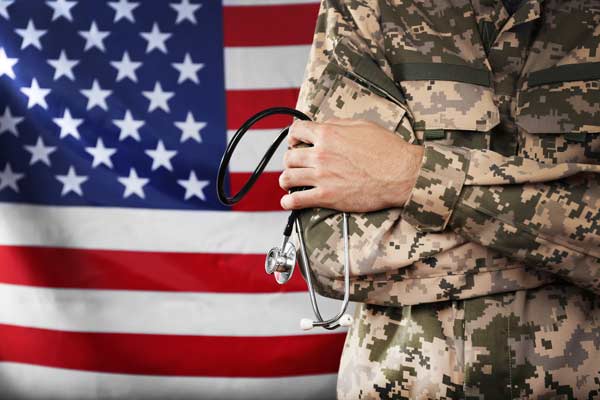Camp Lejeune Disease Information for Minneapolis Residents
Minneapolis Veterans and Family Members Developed Camp Lejeune Diseases from Contaminated Water
Two wells which served hundreds of thousands of Marines and their families, civilian workers and other personnel over the course of three decades were contaminated with high levels of harmful and toxic chemicals. The result is elevated levels of many severe and life-threatening illnesses in residents of Minneapolis who trained, lived and worked on the U.S. Marine Corps Base Camp Lejeune, North Carolina, between the 1950s and 1980s. This page contains full information on Camp Lejeune diseases for Minneapolis victims and their family members.

Information on Camp Lejeune Diseases for Minneapolis Residents
U.S. Marine Corps Base Camp Lejeune is a sprawling training camp on the coast of North Carolina. With fourteen miles of sandy beaches and positioned near two ports, the Marine base camp offers unique training opportunities and speedy deployment routes. Opened in the early 1940s, the Marine Corps Base Camp is infamous for its contaminated drinking water in the 1950s, '60s, '70s and '80s that resulted in life-threatening Camp Lejeune water diseases for veterans in Minneapolis.
Camp Lejeune has several wells that supply water to its many buildings. At least two of these wells, those serving Hadnot Point and Tarawa Terrace, were contaminated with high concentrations of harmful chemicals known to cause cancer and other illnesses. Years of botched testing, evasive reporting, and failed leadership left these wells in operation for several years beyond the first findings of contamination, resulting in countless more cases of serious Camp Lejeune water diseases and associated deaths. Among those affected were dedicated military families now residing in Minneapolis.
Benzene, PCE (perchloroethylene, a drycleaning solvent), and TCE (tricholorethylene, a degreaser), among dozens of other toxic substances, were found at concentrations 240 to 3400 times the levels known to be safe for human exposure, resulting in serious Camp Lejeune water illnesses and death. Camp Lejeune water diseases are traced to several possible sources including maintenance units on the base that cleaned military equipment; leaks from the base's underground fuel storage tanks, and a nearby, off-base dry cleaning company.
How Can I Help?
Take action now by signing the Camp Lejeune Justice Act Petition. Veterans and their family members who were harmed by water contamination at Camp Lejeune, along with their loved ones and supporters, can help by signing this important petition. Click here to learn more.
Diseases in Minneapolis Residents from Camp Lejeune Water Contamination
In 1997, the Agency for Toxic Substances and Disease Registry (ATSDR) issued a report stating that water at Camp Lejeune has been contaminated for a period of almost thirty years. Yet at this time, the government still did not acknowledge a connection between the contamination and Camp Lejeune water diseases.
In 2010, a House Oversight Subcommittee Hearing revealed that leadership at the Marine Corps Base Camp were aware of the presence of toxic and dangerous chemicals in the water supply as early as 1982 but failed to act until the end of 1985. The main base, barracks, family housing, and temporary housing, including schools, workplaces and daycare centers, continued to rely on contaminated water supplies for four extra years before the dangerous wells were finally closed. No doubt this period of time represents thousands of exposures and countless cases of Camp Lejeune water diseases in Minneapolis that could have been avoided.
According to a 2014 report from the CDC, Minneapolis persons who drank and bathed in the contaminated water for thirty or more days were exposed to a significantly elevated risk for several diseases. Camp Lejeune water diseases found among Minneapolis residents include esophageal cancer, lung cancer, breast cancer, bladder cancer, kidney cancer, leukemia, non-Hodgkin's lymphoma, ALS, multiple myeloma, renal toxicity, aplastic anemia and other myelodysplastic syndromes, hepatic steatosis, female infertility, miscarriage, scleroderma, and neurobehaviorial effects.

Minneapolis veterans and others who lived and worked in the affected areas faced the following risks for specific Camp Lejeune water diseases:
- 10% higher risk of dying of cancer than Marines at Camp Pendleton
- 35% higher risk of contracting kidney cancer
- 42% higher risk of developing liver cancer
- 47% higher risk of developing non-Hodgkin's lymphoma
- 68% higher risk of developing multiple myeloma
- Double the risk of developing ALS
According to the Department of Veteran's Affairs, up to 750,000 people qualify for free medical care for Camp Lejeune water diseases, as provided by the Janey Ensminger Act of 2012. Families in Minneapolis suffering from Camp Lejeune diseases are among those who qualify for this care.
Minneapolis military families, alongside their civilian counterparts, exemplify a patriotic selflessness and dedication that is unmatched. The exposure and subsequent Camp Lejeune water diseases these Minneapolis families have suffered are an unthinkable hardship for hundreds of thousands of families:
Camp Lejeune Justice Act Addresses Water Contamination Claims from Minneapolis Residents
Survivors of Camp Lejeune water diseases in Minneapolis can now obtain free medical care through the VA. Yet Minneapolis individuals still cannot seek damages for the harm and loss they have faced as a result of Camp Lejeune water disease. The Camp Lejeune Justice Act would iron out a legal barrier and for the first time, enable families in Minneapolis harmed by Camp Lejeune water diseases to make a claim and have their rightful day in court. The bill would enable Minneapolis persons and loved ones who lived or worked on Camp Lejeune for at least 30 days between August 1, 1953 and December 31, 1987 to present evidence of injuries suffered as a result of exposure to contaminated water at Camp Lejeune.
It's unacceptable that veterans and their families suffering from the harmful effects of water contamination and exposure to toxic substances are unable to receive due process. I'm proud to join this bipartisan bill that would eliminate legal barriers currently blocking these families at Camp Lejeune from accessing the justice system. Senator Peters, Chairman of the Homeland Security and Governmental Affairs Committee

The Camp Lejeune Justice Act - Justice for Veterans Now!
The Camp Lejeune Justice Act - Justice for Minneapolis Veterans Now!
Veterans and their loved ones in Minneapolis have suffered from severe and life-threatening illnesses for decades as a result of exposure to contaminated water at Camp Lejeune. The Camp Lejeune Justice Act will give Minneapolis families the right to pursue justice in a court of law and seek damages for the pain, suffering and loss that have resulted from contaminated Lejeune water.
Minneapolis Residents: Sign the Camp Lejeune Justice Act Petition
The Camp Lejeune Justice Act petition calls on elected officials serving Minneapolis to pass this historic and vital piece of legislation as a remedy to the harm done to countless servicemembers and their families in Minneapolis and beyond. Add your voice by signing the Camp Lejeune Justice Act Petition today!








